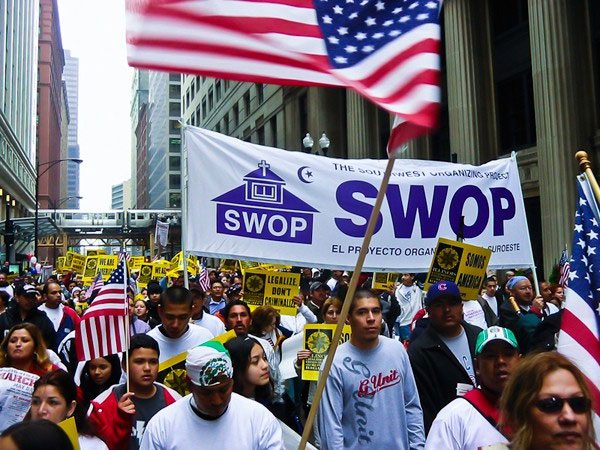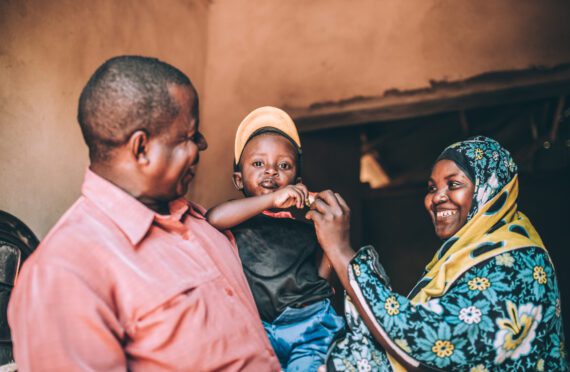This story is featured in the 2018 Hunger Report: The Jobs Challenge
Chicago is the birthplace of community organizing in the United States. Community organizing is essentially a bottom-up approach to reducing poverty and revitalizing neighborhoods. It enables residents to see that they themselves are the most powerful and sustainable instruments of change in their communities. The Southwest Organizing Project (SWOP) in Chicago is an example of community organizing at its best. In 2013, SWOP received the John D. and Catherine T. MacArthur Foundation’s Award for Creative and Effective Institutions, the nonprofit equivalent of the foundation’s “genius award” for individuals. It was given to SWOP for effective community organizing in general and for its anti-foreclosure work in the wake of the Great Recession in particular.
SWOP is an institutionally based community organization, bringing together 37 dues-paying member institutions that participate in the organization’s collective actions. Successful community organizing engages multiple stakeholders since there is no single “silver bullet” that will solve all the problems of low-income communities. SWOP members include religious organizations, schools, social service providers, and businesses. SWOP organizers bring them together to agree on and implement strategies and to engage with key actors at multiple levels.
The neighborhoods where SWOP works have higher poverty and unemployment rates than the city average. Chicago Lawn is the poorest of the five areas where SWOP member institutions are located, with a median household income of $33,000. At the height of the foreclosure crisis, Chicago Lawn had twice the foreclosure rate as the city of Chicago overall. In one 20-block area, 93 proper-ties were left vacant after the housing crash. Latinos and African Americans, who made up nearly 90 percent of the residents, were heavily targeted by subprime lenders.
As part of the anti-foreclosure work, Neighborhood Housing Services, a SWOP member institution, provided counseling and mediation services that helped hundreds of families keep their homes. Working through another partner, real estate company Brinshore Development, SWOP has purchased vacant properties that will be used to increase the supply of affordable housing. After the properties are rehabilitated, SWOP member churches reach out to parishioners interested in buying or renting in the neighborhood. Would-be homeowners or renters can also learn about affordable housing opportunities through the activities SWOP leads at schools for students and parents.
SWOP was founded in 1996 with the mission of encouraging a multiracial and multicultural response to the increasing diversity in the area and promoting social cohesion. SWOP’s current areas of focus include reducing violence, advancing the rights and civil liberties of immigrants, and improving achievement in public schools through parent, student, and school staff engagement.
Senior organizer David McDowell explained, “Jobs are the logical result of the work we’re doing in the schools. If we’re going to be successful getting people out of the gang life, the outcome of that work is their seeing that a job is a better option.” SWOP was also instrumental in passing a statewide law in 2013 that made it possible for undocumented immigrants to obtain a driver’s license. Being able to drive expanded the job opportunities available to community residents.
“We need community leaders who can educate political and policy leaders from firsthand experience”



